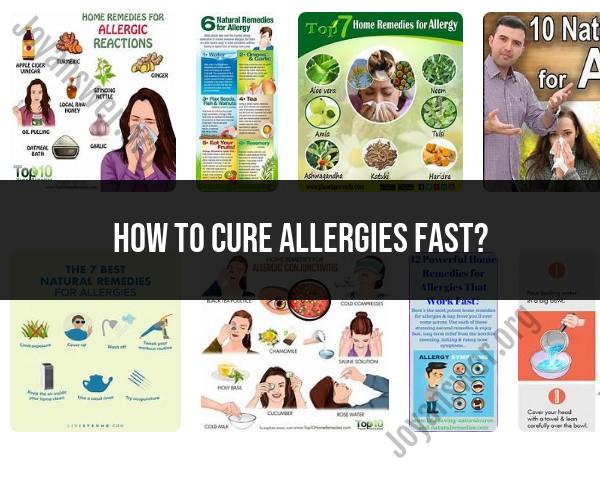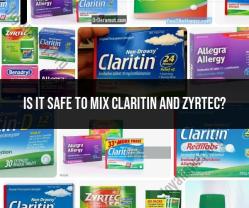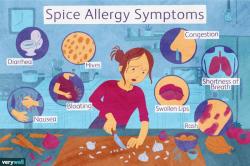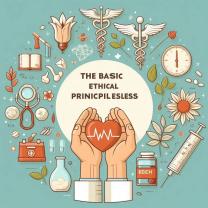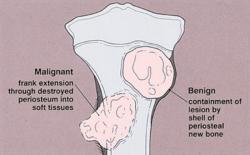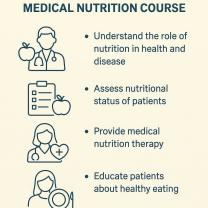How to cure allergies fast?
Allergies cannot be "cured" in the same way that an infection can be treated with antibiotics. However, there are several steps you can take to alleviate allergy symptoms and get relief quickly. Keep in mind that while these methods can provide relief, they are not permanent solutions, and you may need to manage your allergies over the long term. Here are some tips and remedies for quick allergy relief:
Over-the-Counter Medications:
- Antihistamines: Non-prescription antihistamines like loratadine (Claritin) or cetirizine (Zyrtec) can help relieve symptoms like sneezing, itching, and runny nose.
- Decongestants: Decongestants, such as pseudoephedrine (Sudafed), can reduce nasal congestion. Be cautious, as they may raise blood pressure and should not be used if you have certain medical conditions.
- Nasal Steroid Sprays: Over-the-counter nasal corticosteroid sprays like fluticasone (Flonase) can help with nasal congestion, sneezing, and runny nose.
Allergy Eye Drops: If you have itchy or red eyes due to allergies, over-the-counter allergy eye drops can provide relief.
Nasal Rinse or Neti Pot: Using a saline nasal rinse or a Neti pot can help clear nasal passages and reduce congestion. Be sure to use distilled or sterile water for this purpose to avoid infection.
Keep Allergens at Bay:
- Try to identify and minimize exposure to allergens that trigger your allergies. This might include using air purifiers, keeping windows closed, and regularly cleaning your home to reduce dust and pet dander.
Allergy-Friendly Bedding: Use allergy-proof covers for pillows and mattresses to reduce exposure to dust mites.
Avoid Outdoor Allergens: On high pollen days, try to stay indoors or limit outdoor activities, especially during peak pollen hours.
Stay Hydrated: Staying hydrated can help thin mucus and relieve congestion.
Cool Compresses: Apply a cool compress to your eyes or face to reduce swelling and relieve itching.
Steam Inhalation: Inhaling steam from a bowl of hot water can help relieve nasal congestion. Be cautious not to burn yourself, and don't use boiling water.
Humidifiers: Using a humidifier in your bedroom can add moisture to the air, which can help with dry throat and nasal passages.
Consult a Doctor: If your allergies are severe or not responding to over-the-counter treatments, consider consulting an allergist or immunologist. They can perform allergy testing and recommend specific treatment options, including prescription medications or allergy shots (immunotherapy).
Remember that the effectiveness of these remedies can vary from person to person, and what works best for you may depend on the specific allergens you are sensitive to. It's important to consult with a healthcare professional if you have persistent or severe allergy symptoms, as they can help you develop a personalized allergy management plan.
How to Get Fast Allergy Relief
The best way to get fast allergy relief is to take over-the-counter or prescription allergy medications. However, there are also a number of natural remedies and lifestyle adjustments that can help to reduce allergy symptoms.
Over-the-Counter and Prescription Allergy Medications
There are a number of over-the-counter and prescription allergy medications available. Some of the most common over-the-counter allergy medications include:
- Antihistamines: Antihistamines work by blocking the effects of histamine, a chemical that is released by the body during an allergic reaction. Antihistamines can help to relieve sneezing, runny nose, itchy eyes, and hives.
- Decongestants: Decongestants work by narrowing blood vessels in the nose, which can help to reduce swelling and congestion. Decongestants can be helpful for relieving a stuffy nose and sinus pressure.
- Saline nasal sprays: Saline nasal sprays can help to flush out allergens and mucus from the nose. Saline nasal sprays are gentle and can be used as often as needed.
Prescription allergy medications include:
- Nasal corticosteroids: Nasal corticosteroids are more powerful than over-the-counter allergy medications and can be more effective for relieving severe allergy symptoms.
- Allergy shots: Allergy shots, also known as immunotherapy, are a long-term treatment for allergies. Allergy shots work by exposing the body to small amounts of allergens, which helps to build up the body's immunity to allergens.
Natural Remedies for Quick Allergy Symptom Relief
There are a number of natural remedies that can help to relieve allergy symptoms. Some of the most popular natural remedies for allergies include:
- Local honey: Local honey can help to reduce inflammation and swelling in the nose. To use local honey for allergies, take one tablespoon of honey per day.
- Quercetin: Quercetin is a flavonoid that has anti-inflammatory and antihistamine properties. Quercetin can be found in foods such as onions, apples, and grapes. You can also take quercetin supplements.
- Nettle leaf: Nettle leaf is an herb that has anti-inflammatory and antihistamine properties. Nettle leaf can be taken as a tea or in capsule form.
Lifestyle Adjustments for Rapid Allergy Recovery
There are a number of lifestyle adjustments that can help to reduce allergy symptoms and speed up recovery. Some of the most helpful lifestyle adjustments for allergy sufferers include:
- Avoiding allergens: The best way to prevent allergy symptoms is to avoid allergens. If you know what you are allergic to, try to avoid exposure to those allergens. For example, if you are allergic to pollen, stay indoors on days when the pollen count is high.
- Washing your hands frequently: Washing your hands frequently can help to remove allergens from your hands and prevent you from spreading allergens to your eyes and nose.
- Using a humidifier: A humidifier can help to add moisture to the air, which can help to thin mucus and make it easier to cough up.
- Getting enough sleep: Getting enough sleep can help to boost your immune system and make you more resistant to allergies.
When to Seek Medical Attention for Severe Allergic Reactions
If you experience a severe allergic reaction, such as anaphylaxis, seek medical attention immediately. Anaphylaxis is a life-threatening reaction to allergens that can cause difficulty breathing, swelling of the throat and tongue, and a drop in blood pressure.
If you have a history of severe allergic reactions, you may be prescribed an epinephrine auto-injector, such as an EpiPen. An EpiPen is a self-injectable device that delivers epinephrine, a hormone that can help to reverse the symptoms of anaphylaxis.
If you are experiencing any of the following symptoms, seek medical attention immediately:
- Difficulty breathing
- Swelling of the throat or tongue
- Hives
- Dizziness
- Confusion
- Rapid heart rate
- Drop in blood pressure
If you have any questions or concerns about allergies, talk to your doctor. They can help you to develop a treatment plan that is right for you.
